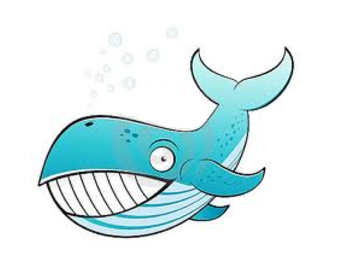#350) SHARKS AND WHALES: Whatchu Gonna Do When the Bad Guys Go?
April 21st, 2014
(BLASPHEMY WARNING)
The ocean conservation movement received two “setbacks” over the past year. First, Japan was ordered by the U.N. to give up its whaling in the Antarctic. Second, the tide has shifted in the shark finning issue, with China pulling back on it’s shark fin consumption. That’s two great villains removed from the story of saving the oceans. This isn’t an Onion posting I’m attempting here — it’s a serious issue. What do you do when you start to run out of villains? This is why I teach storytelling. It is at the core of EVERYTHING. And it’s a potential, eventual crisis for the ocean conservation community. Foreigners killing whales? Easy to raise money. Copepod populations declining? Not so easy. I’m not making light of these great victories, I’m just saying everyone needs to learn more about storytelling to grasp the complexity of mass communication. As the great screenwriting instructor Frank Daniel always said, “Your story is only as good as your villain is evil.” An “easy villain” shortage is emerging.
HAPPY WHALES TO YOU. It’s been a good year for whales and sharks. So what’s next to protect … the pteropods?
WHO WILL CRY FOR THE PLANKTON?
In the wake of the BP oil spill in 2010, this was a question my former Shifting Baselines partner Jeremy Jackson asked on the Diane Rehm show. It’s a valid question, and it’s a problem.
People support causes when they are motivated. Whales are incredibly motivational. They were motivational enough to save themselves in the 1970’swith the worldwide “Save the Whales,” campaigns. Back then there was one clear villain — the whalers — which made for plenty of motivational stories. But now … ?
What’s going to happen to the Animal Planet show, “Whale Wars“? I see there are other versions being filmed in the Faroe Islands (pilot whales) and Canada (seals), but it’s not quite the same as the big bad Japanese in the Antarctic.
SHARKLESS IN SEATTLE
At the same time as the whale lovers are losing their prime villain, the tide has turned on the issue of shark finning. I heard this last September in a talk from Peter Knights, head of WildAid. I have HUGE admiration for their work in mass media. They managed to do the very thing I was begging for a decade ago — to use mass media as the centerpiece of an environmental campaign.
He said they scored over $200 million in free air time in China with PSAs featuring Yao Ming and Jackie Chan speaking out against shark fin soup (which dwarfs the $10 million we scored a decade ago with my Jack Black Ocean Symphony PSA for Shifting Baselines, and is part of why I am so admiring of them).
The PSA’s were one major element in the Chinese government banning shark fin soup from formal banquets in China. Lots of other stuff followed from that one large gesture. But the net result is the story has now morphed from simple to more complicated.
WHY DO YOU THINK CLIMATE IS SO BO-HO-HORING …
Now you start to see the problem with climate — it’s basically the old Pogo line, “We have met the enemy and he is us.” It’s really hard to motivate the public when the ultimate villain is ourselves.
Bottom line, once again, it’s all about story. Which means that if you don’t have a good enough handle on how story dynamics work, you’ll end up resorting to things like getting the public to believe there’s an island of plastic trash in the North Pacific the size of Texas because “it makes for such a good story.” When in fact there ain’t. The truth is nowhere near as simple, or fun.
With each conservation victory, the communication challenge becomes more difficult. Which leaves you with three options: get better, lie, or quit. Hopefully environmentalists realize the first one is the only viable option.
